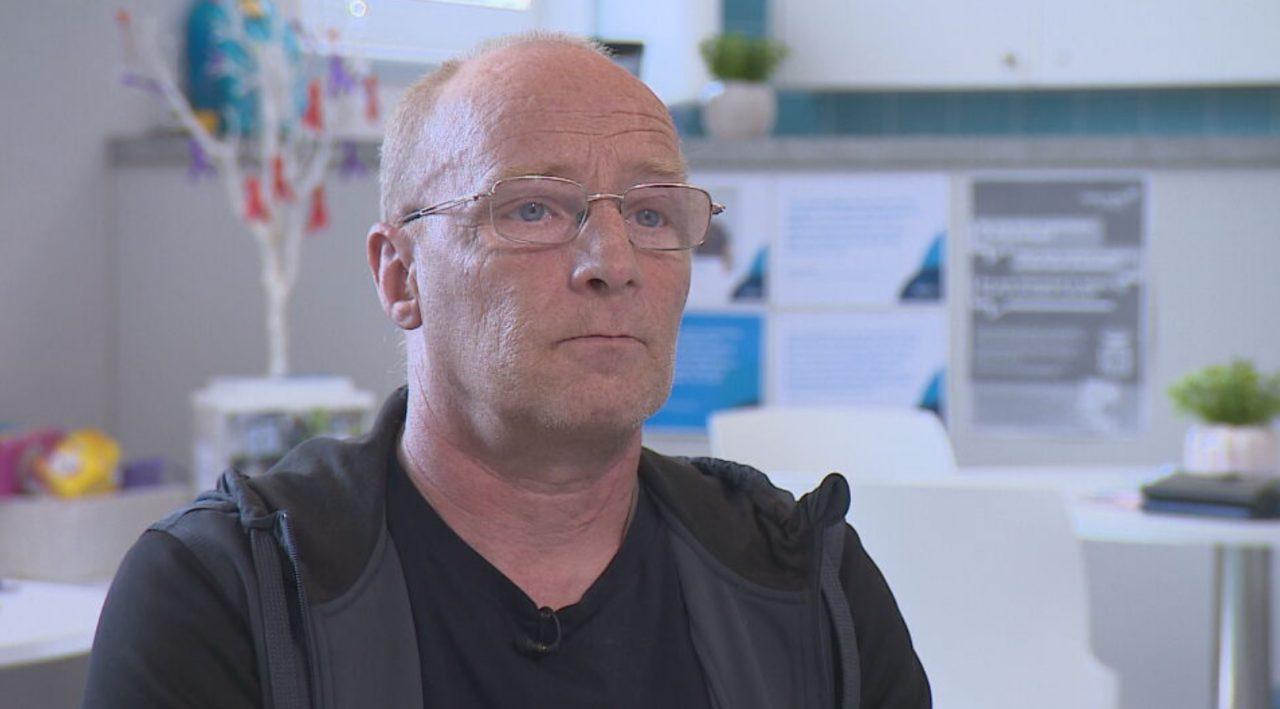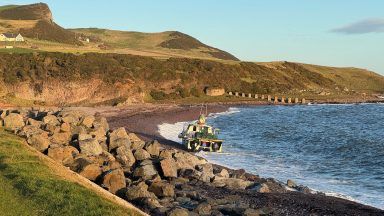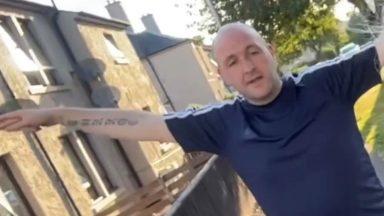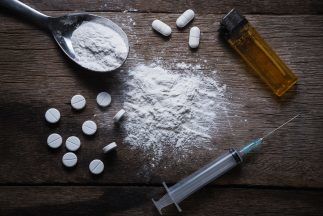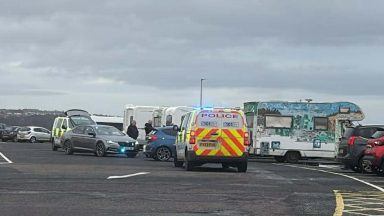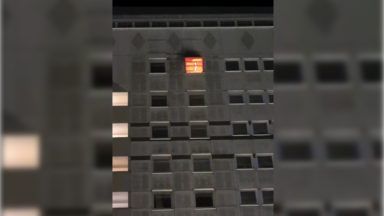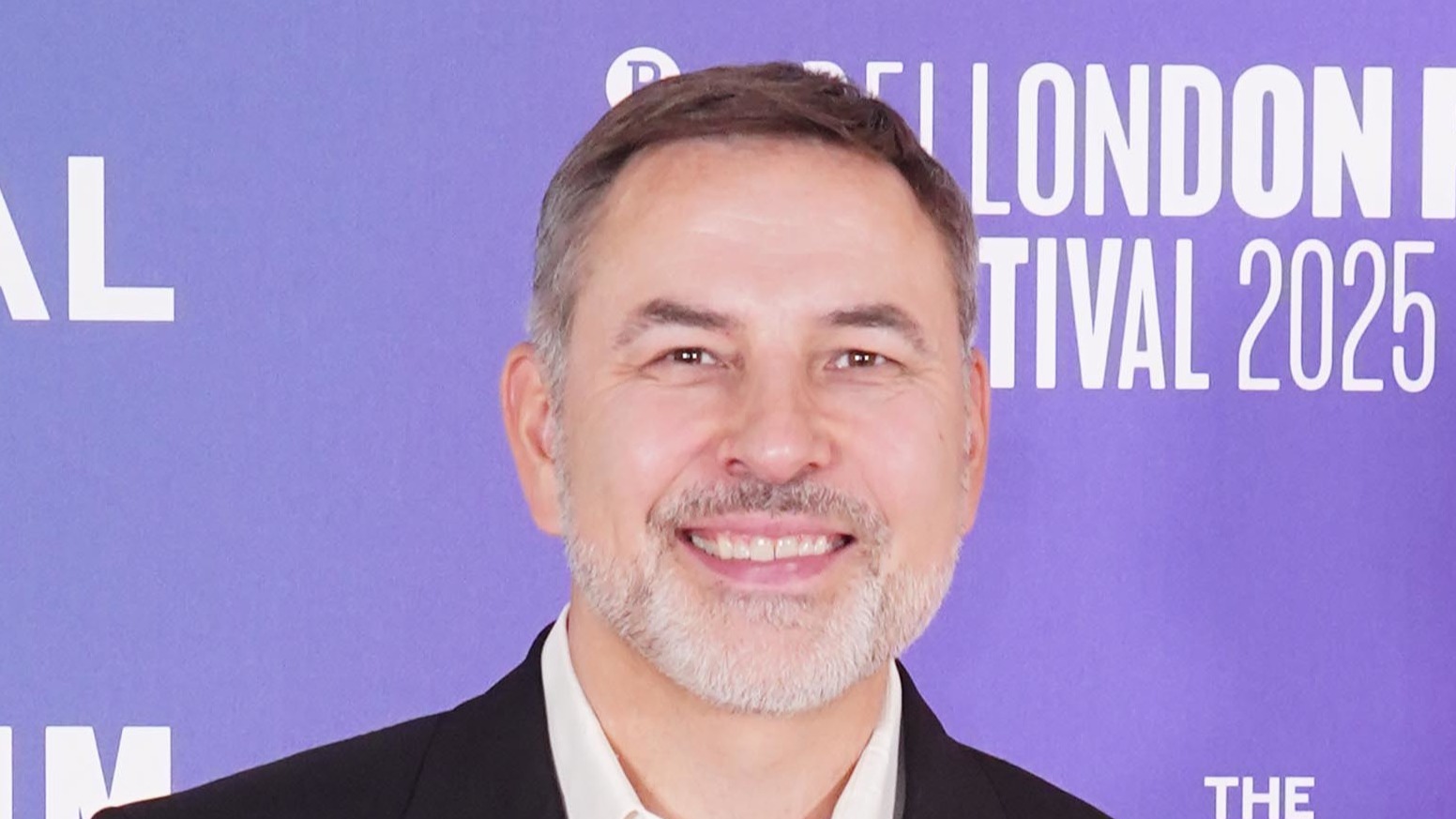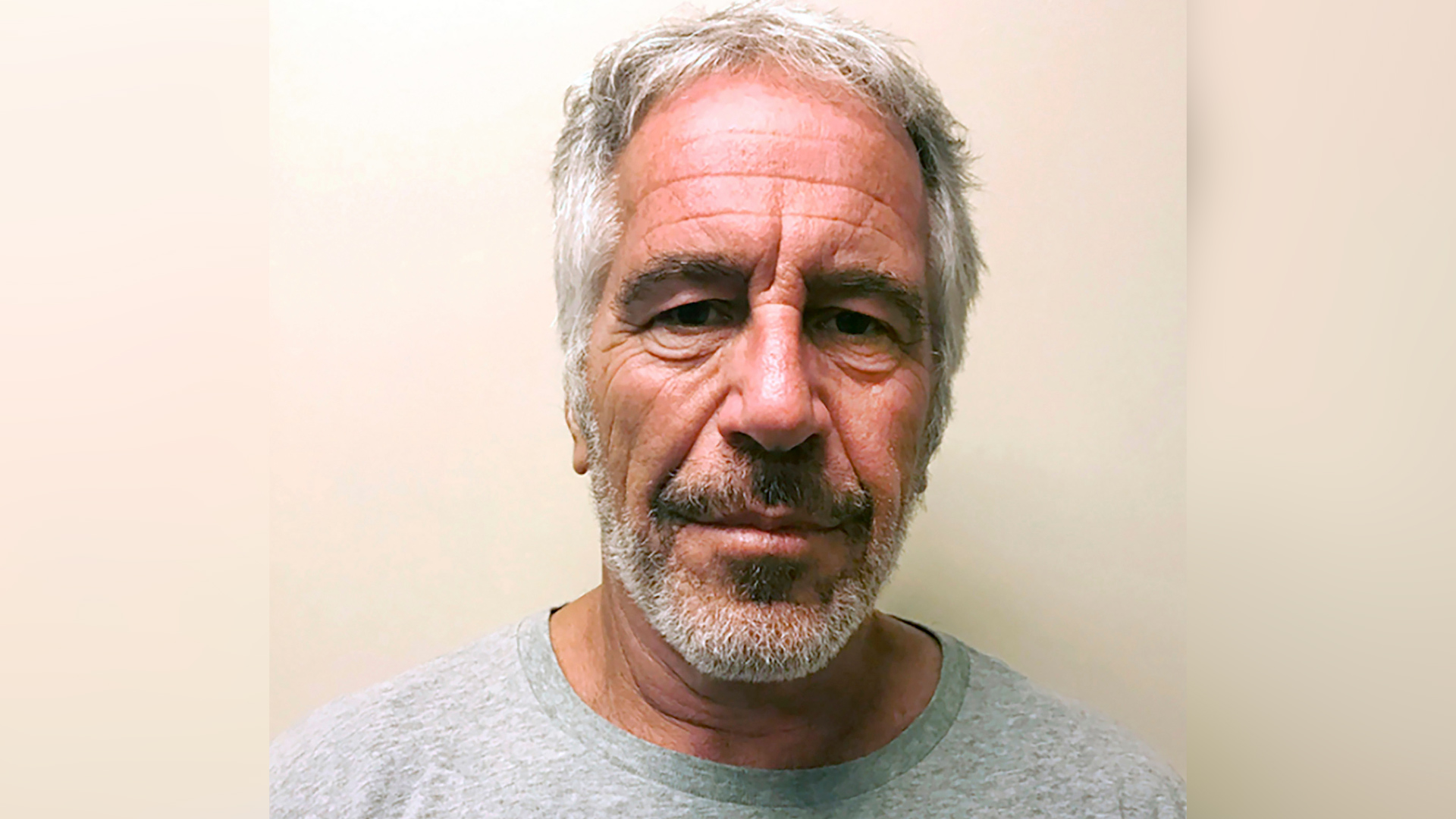A man who battled a 30-year addiction has shared how he has turned his life around to help other people struggling.
Eddie Wright arrived in Dundee with just two plastic bags of belongings and the clothes on his back after a friend got him a place at Jericho House, a rehabilitation facility in the city.
Now 50, Eddie recalls feeling like there was “no way out” of the depths of his crisis – and used his last £200 to travel north from Glasgow in 2019.
He told STV News: “It was the scheme I came from. It was alcohol, Valium, a bit of dope at first and then it led to other drugs. My life just continued like that. It was a pure shambles. I didn’t know anything else.
“Before I knew it, I was neck deep with no way out.
“I went through nervous breakdowns, self-medicating on top of it. My head was a total mess. I wouldn’t wish it on my worst enemy.”
Eddie added: “Jericho was always in the back of my mind but my addicted brain told me I could beat the situation myself. I kept going for another ten years.
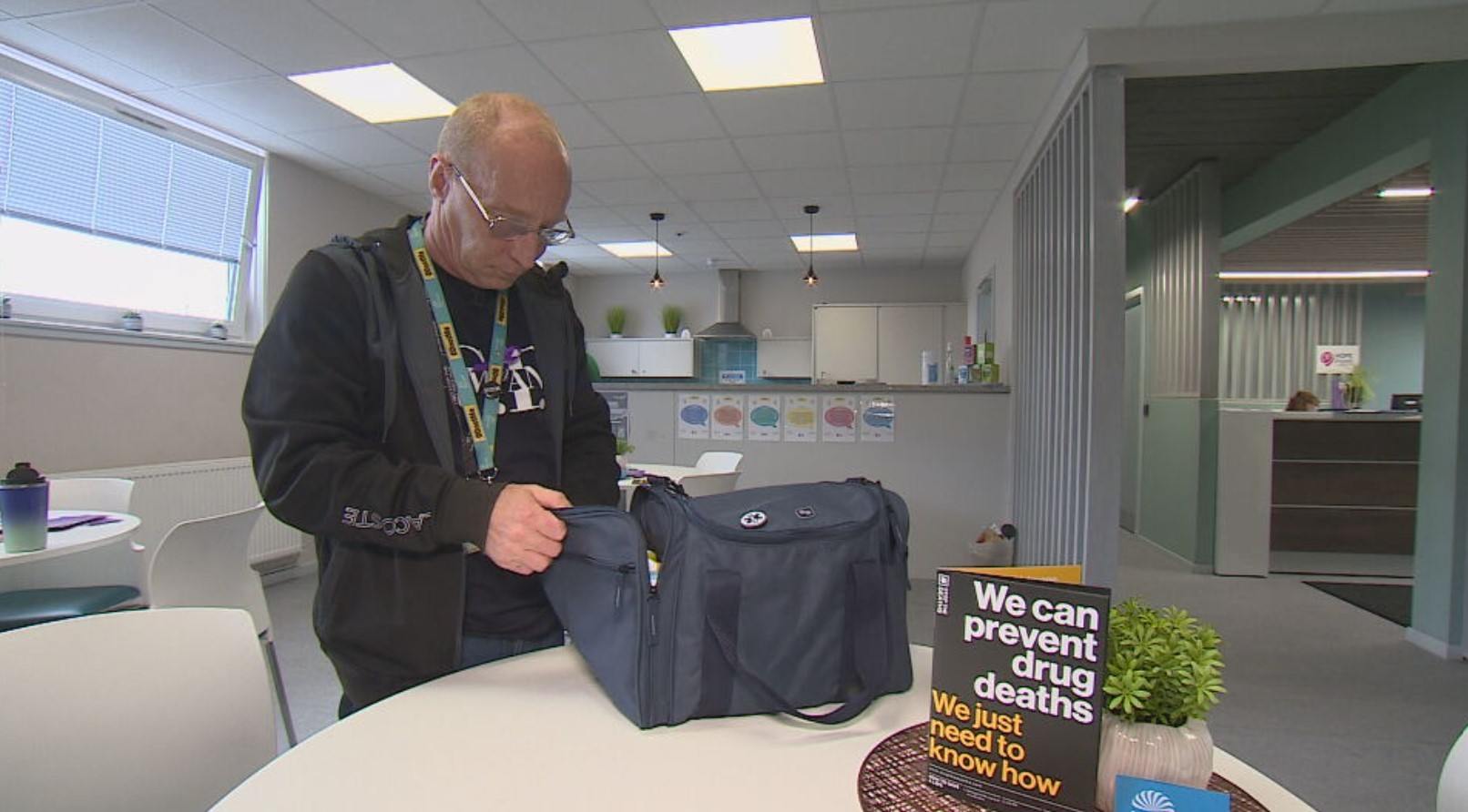 STV News
STV News“Eventually, I went to Dundee and never turned back. If I can do it, anyone can.”
Eddie is one of many taking part in International Overdose Awareness Day on August 31, a campaign to prevent opioid overdose and remember those who have lost their lives to drugs.
Now a peer support and harm reduction worker, Eddie helps others in the community access safe drug injecting equipment, food banks and facilitates access to counselling and recovery services.
He also delivers training to charities, colleges and universities on how to administer naloxone, a life-saving drug that rapidly reverses opioid overdose.
“People tend to open up to me as I’m a peer. It’s easier to get people’s stories and get what they really need,” he said.
“I’ve got umpteen requests for training. I’m not the only one in here that can do it but I’ve turned into Mr Naloxone. I work more than I probably should.
“It’s not a golden bullet; we need other things to go with it but its definitely a life-saver. I’ve had to use it myself a couple of times.”
Now, Eddie is making it his mission to educate people on how to save lives from overdose and turn the tide on preventable drug deaths.
“It’s a right crisis in Scotland. It’s an epidemic, so the more people who carry Naloxone the better because the chances of you finding somebody overdosed in a city like Dundee are pretty high.
“It’s about breaking the stigma.”
Drug deaths surge 12% in a single year – NRS
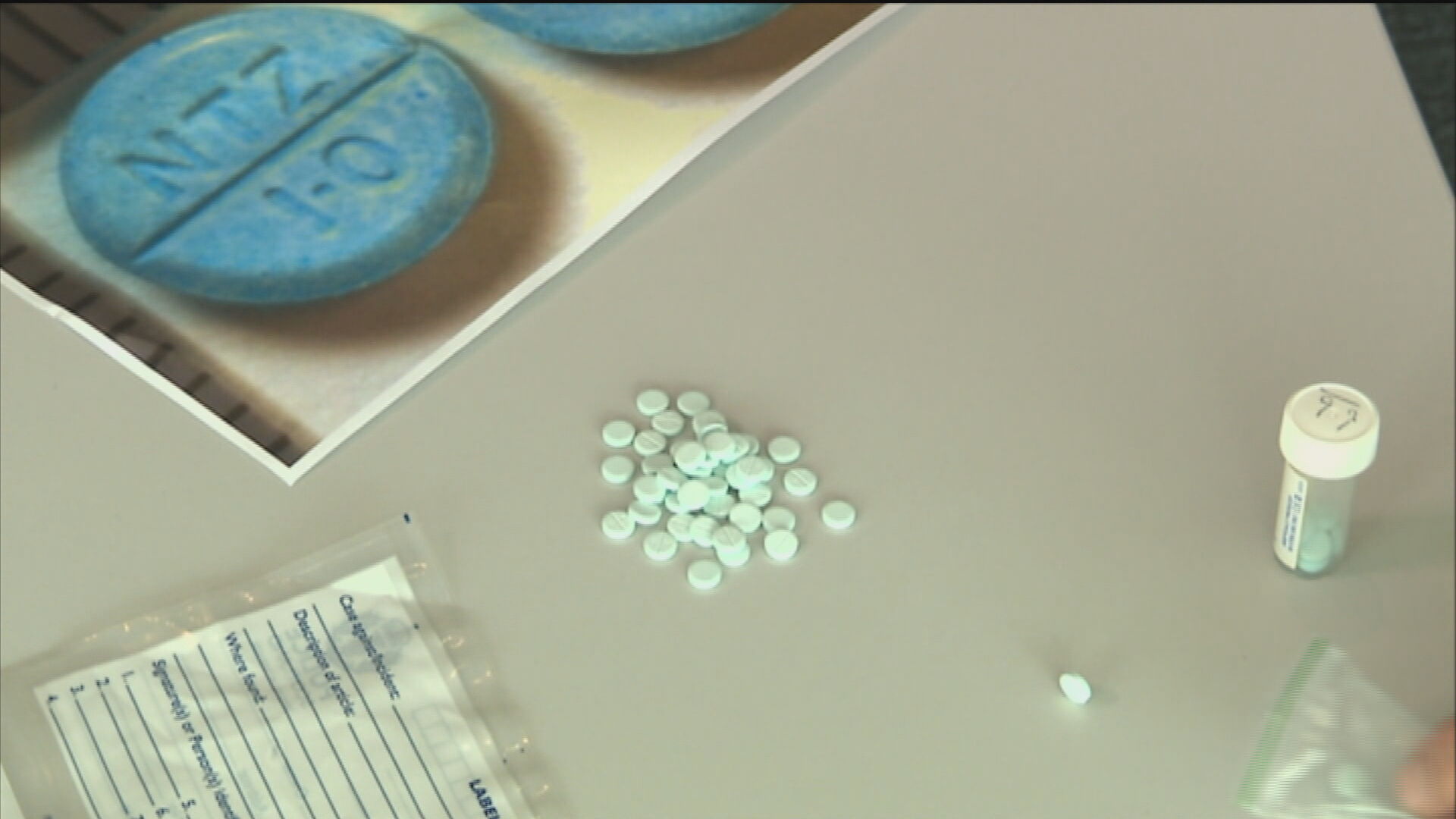 STV News
STV NewsNew figures reveal a worrying picture for drug deaths in Scotland.
Drug deaths have surged by 12% in a single year, according to the latest statistics from the National Records of Scotland (NRS).
A total of 1,172 people died due to drug misuse in 2023 – 121 up from the year before.
This amounts to the second-lowest number of drug misuse deaths since 2017, with 2022 seeing the lowest number.
Scotland continues to have double the rate of drug deaths as the rest of the UK and more than other European countries.
NRS said after adjusting for age, the rate of drug misuse deaths was 4.2 times higher in 2023 than in 2000.
People in the most deprived areas of Scotland were more than 15 times as likely to die from drug misuse compared to people in the least deprived areas.
Glasgow City and Dundee City continued to have the highest rates of drug misuse deaths while East Renfrewshire and East Dunbartonshire had the lowest.
‘My brother was a gentle soul – I miss him every day’
 Emma Whelan
Emma WhelanA healthcare practitioner who lost her brother to drugs said she honours his memory by helping others in the recovery community.
Dad-of-one Neil Whannel, 37, died in April 2023 after a long-running battle with addiction.
Mum-of-two Emma Whannel, who is in recovery herself, now works for Turning Point Scotland’s stabilisation service which helped her through her own battle – and says Neil is never far from her mind.
“Neil was such a gentle soul and I miss him, I miss him dearly,” she said. “He loved animals, he could turn his hand to anything. He built his own motorbike.
“I remember my brother every day but we have lost a lot of people who have come through this service this year, so it is a day for reflection.”
Emma said she was “trapped in addiction” for over a decade before she sought help from the service. She hasn’t touched a substance since May 2020.
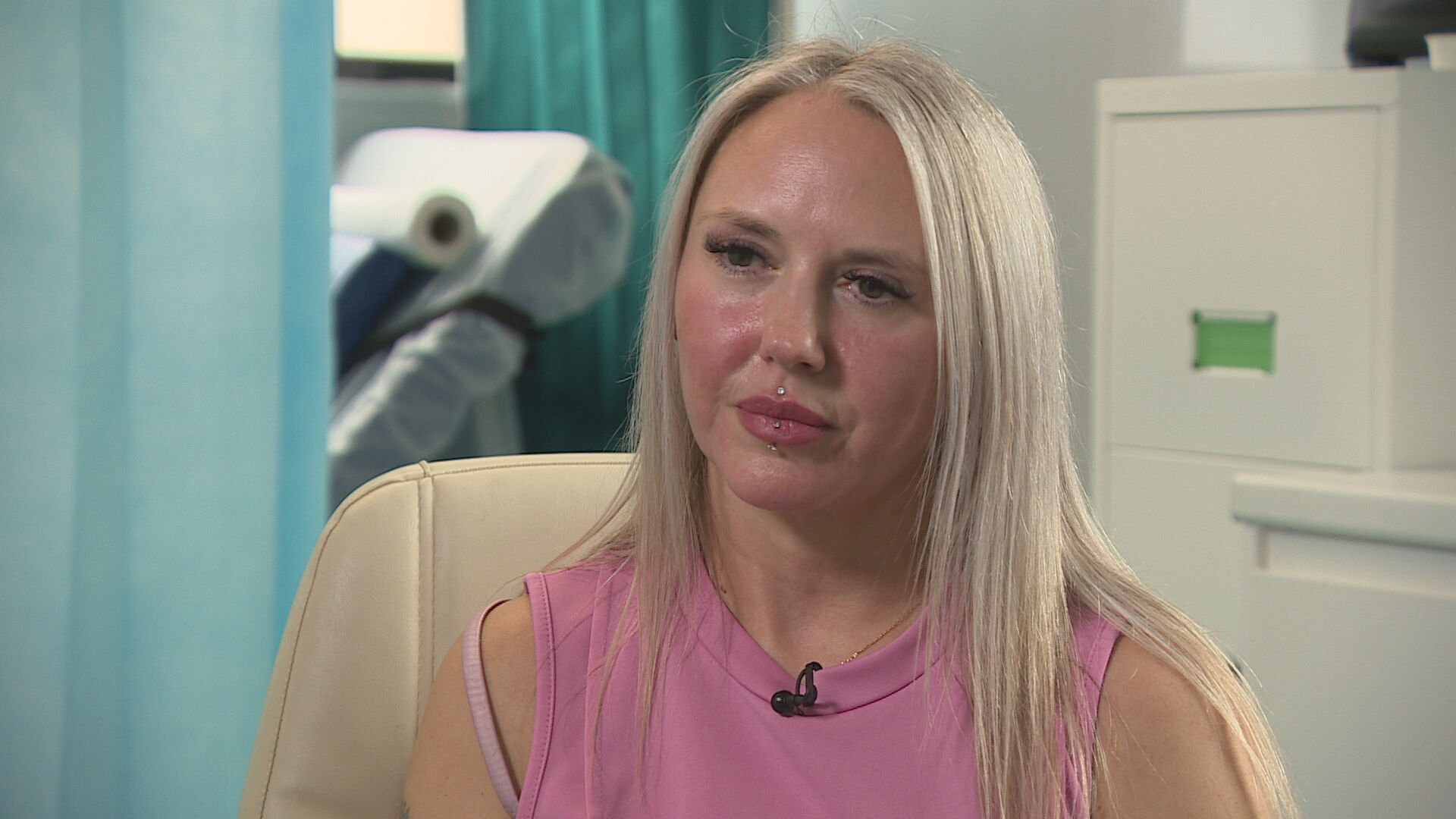 STV News
STV News“I’d resigned myself to the fact that I was always going to be like that, because I didn’t know there was another way.
“You quickly lose all choice. You get stuck in this cycle, an underlying trauma and the longer time goes on, there are more traumas and you’re invisible. In a service like this you’re treated like a human being and build your self-worth.
“Nobody told me you don’t need to live like this. It wasn’t until I found this service I thought, maybe I don’t. I was curious about what an alternative life looked like.”
Emma has worked for Turning Point for three months and is the first port of call for people in crisis who have been referred to the service.
She carries out face-to-face assessments. Often, these people are homeless or have no permanent address.
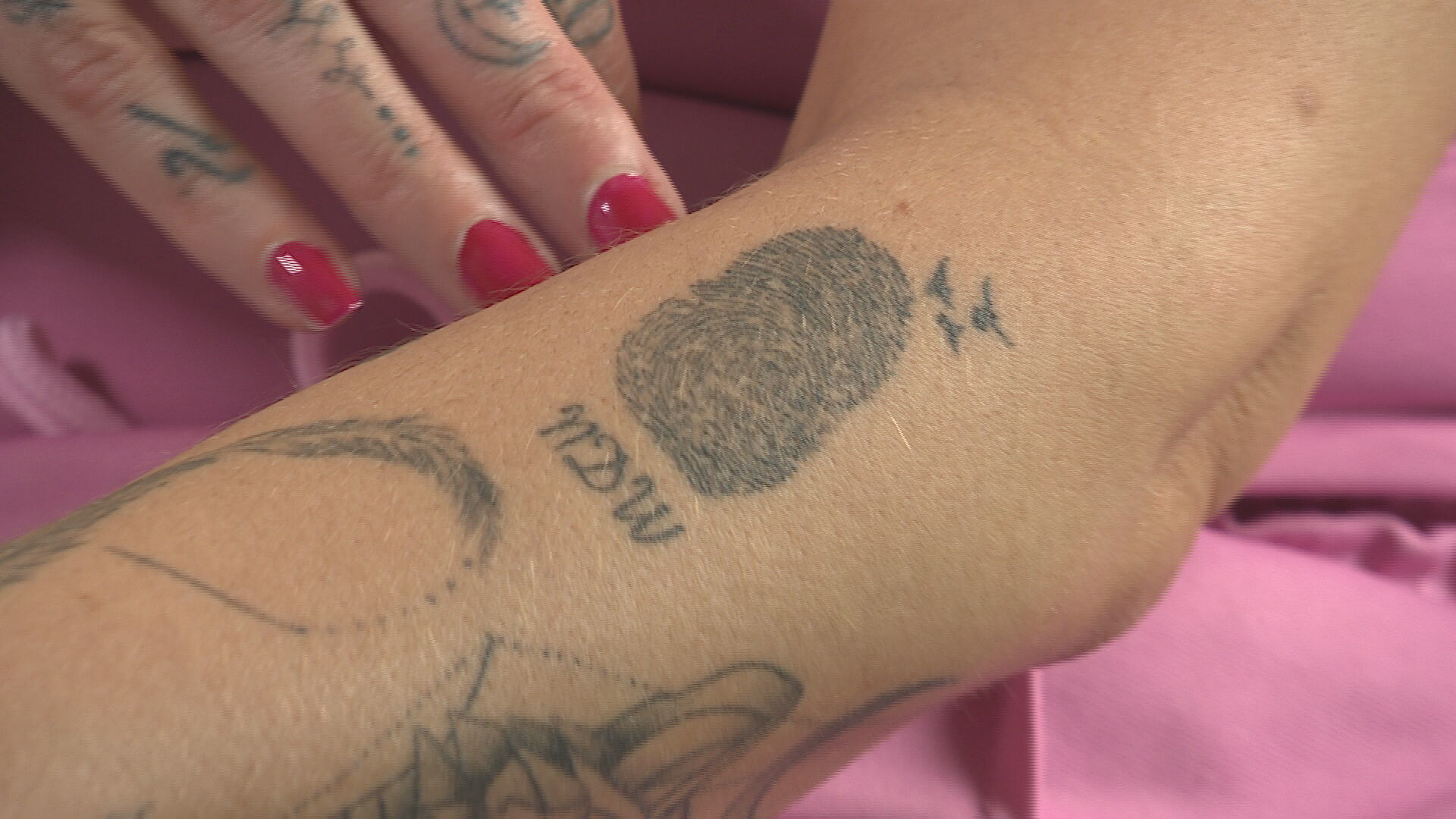 STV News
STV News“It’s about meeting them where they are, whatever they need.
“Face-to-face sessions are important as you can get that human connection. I can build a relationship and put them at ease.
“There’s a trust built-up – and the familiarity helps build that bond. We don’t trust easily, as people who use drugs.
“Sometimes when they first come in, they don’t make eye contact or look at the floor. But over time, you start seeing the head come up, the light in their eyes, the hope and that transformation. It’s miraculous.”
Emma says she feels anger at the rising number of preventable drug deaths.
She added: “I feel that society becomes so blasé about drug and alcohol deaths. These are people, they are human beings and they deserve more. They are not just a statistic.
“People were worried that I wouldn’t be able to continue to do this job after I lost my brother but it has actually given me more drive and passion.
“It’s the people that are left behind that are left with this hole. So for them, their families and everyone else, that is why I want to continue to help people.”
‘I’ve lost colleagues this year who I saw as family’
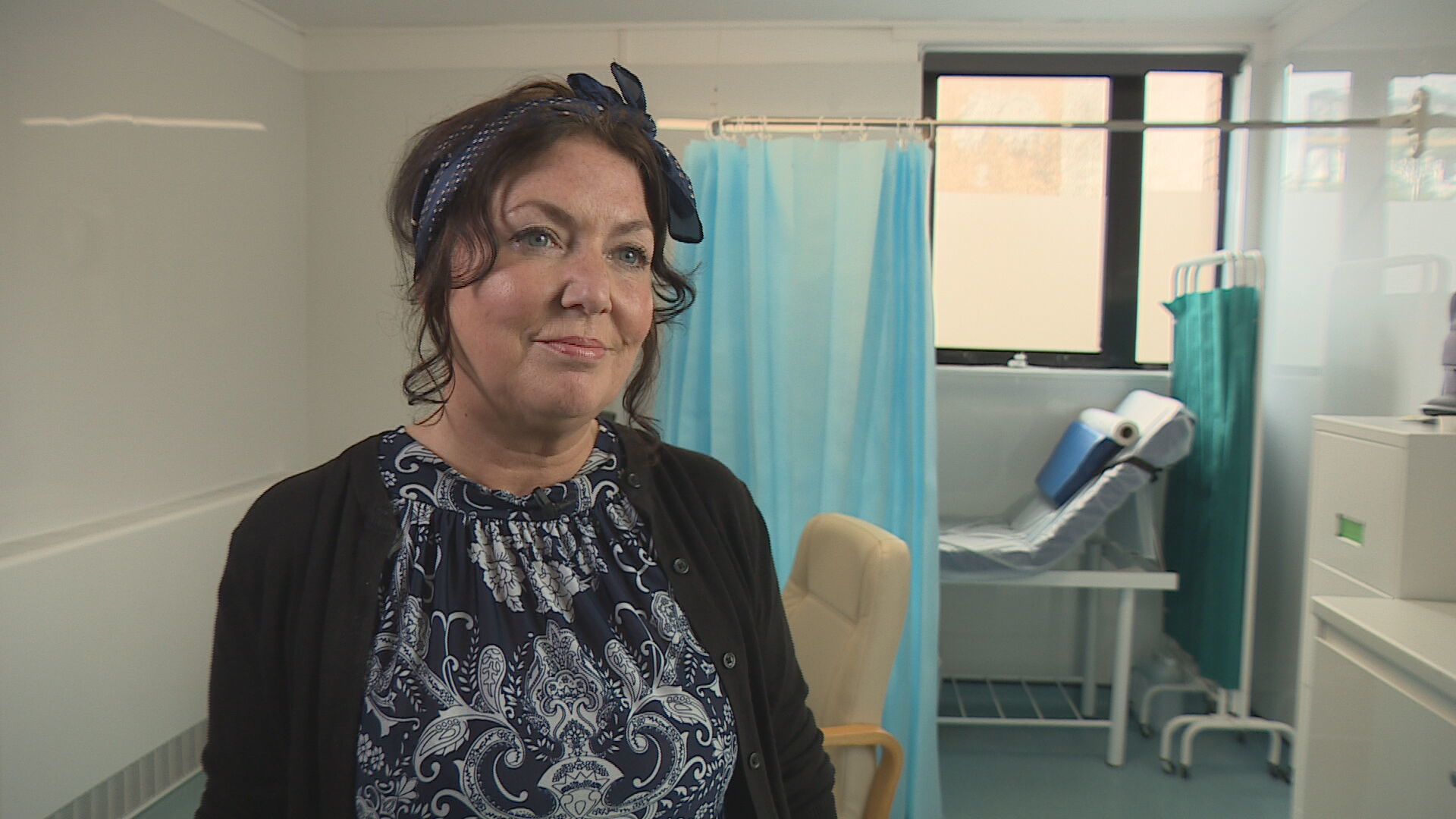 STV News
STV NewsAlison Robertson Brown is a senior nurse at Turning Point’s stabilisation service.
She said she has lost some close colleagues to drugs this year who had been on their road to recovery.
She said: “It’s been a particularly bad year. I have lost a couple of colleagues who were previously abstinent who have died. I have worked with them for a really long time.
“This has really impacted on a lot of staff because we work very closely together on 12 hour shifts. They are family, so it’s hard.
“We’re here to pick up the pieces.”
She said rising poly drug use is a serious cause for concern, particularly with nitazenes entering the drugs market.
Nitazenes is an umbrella term given to a number of synthetic opioids that are often cut with other opioid substances, such as black market morphine.
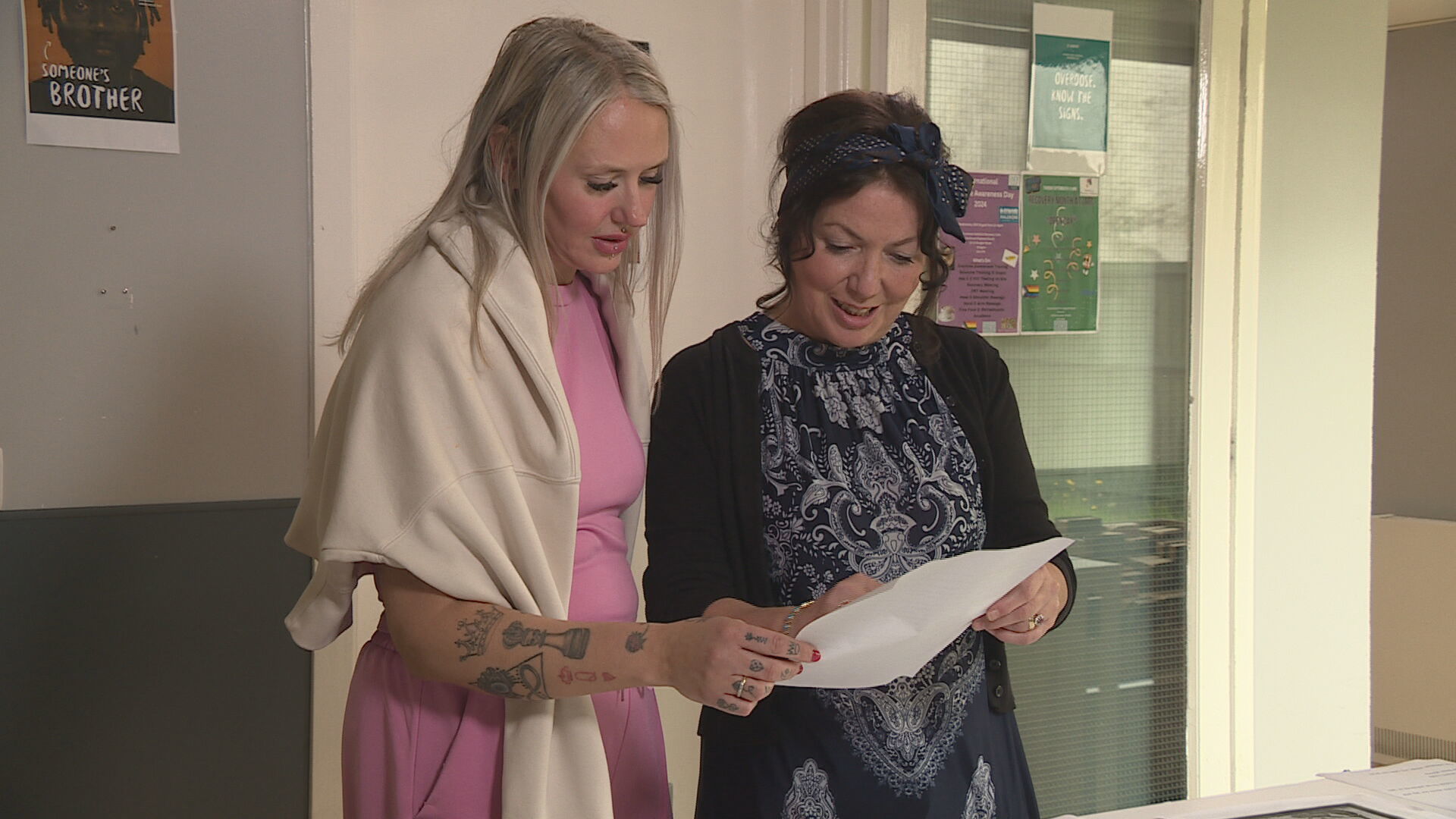 STV News
STV NewsExperts say they are up to 500 times more potent than heroin and have been detected across most areas of Scotland.
“It’s the same year on year but with the nitazenes coming in, that has caused a number of drug deaths that might not have happened,” she added. “People don’t know what they are using.
“We are seeing a lot of poly drug use and a lot of alcohol mixed in with that. I think that is contributing to the drugs deaths.”
In run up to Overdose Awareness Day, those involved in the group have worked on poetry and letter writing as part of their recovery.
The group will also be throwing flowers into the Clyde in memory of the lives lost to drugs.
Alison said: “It’s a really poignant day. People go through a range of emotions – guilt for what they’ve put their family through, hurt as they’ve lost people they loved.
“Some of the guys have put their heart and soul into this poetry and letters and its been really emotional, as it came from the heart. They find it really cathartic.
“They really want change and they just need the help for it.”
Health Secretary Neil Gray said: “My heartfelt condolences go to all those affected by the loss of a loved one through drugs. The level of misuse deaths remains hugely concerning and underlines why we will continue to do all we can to reduce harm and deaths caused.
“On International Overdose Awareness Day we take time to remember those who are no longer with us and consider how we can best support those who struggle with addiction, their families and friends.
“Through our £250 million National Mission on drugs we are taking a wide range of measures to reduce harm and save lives. These include supporting the opening of a Safer Drug Consumption Facility pilot, widening access to Naloxone and delivering drug-checking facilities. The Home Office is considering licence applications for three drug-checking pilots in Scotland, in Glasgow, Aberdeen and Dundee.”
Follow STV News on WhatsApp
Scan the QR code on your mobile device for all the latest news from around the country


